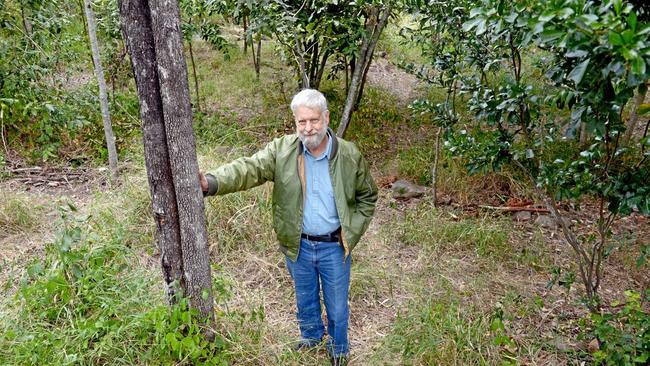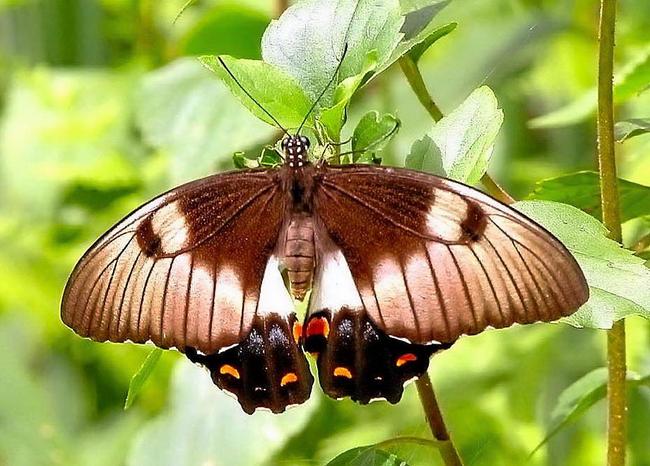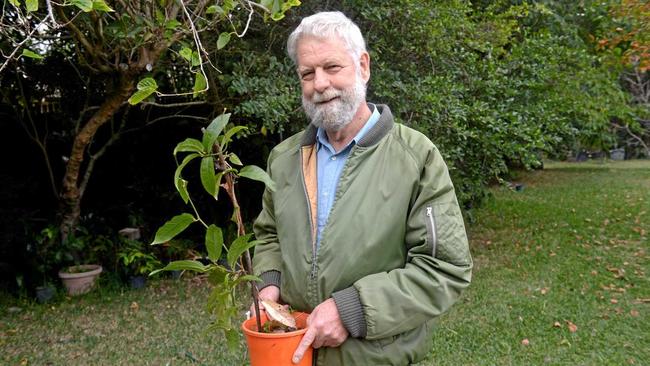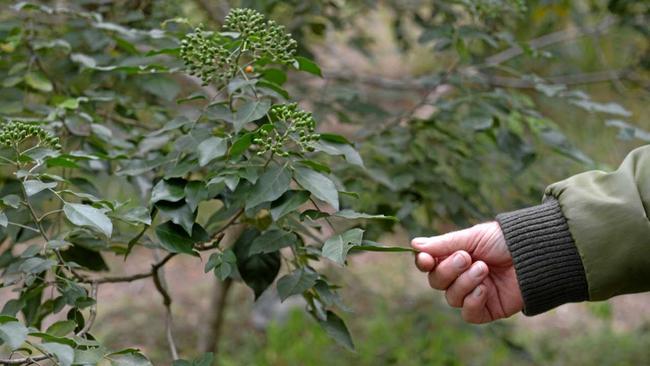Insect expert warns CQ on dire impact of butterfly effect
'There will be catastrophic changes in the ecosystem'

Rockhampton
Don't miss out on the headlines from Rockhampton. Followed categories will be added to My News.
BOB Newby likes to quote his hero, Edward Wilson that "if humans disappear from the planet, in a few hundred years no one will notice the difference.
"But if the insects collapse, there will be catastrophic changes in the ecosystem.”

Originally from a dairy farm in NSW's Northern Rivers region, Mr Newby came to Rockhampton 35 years ago to work a while at CQUniversity.
"It was the usual story; I came for three years and never left,” he said from his Frenchville home.
"It was a huge change from growing up in Dorrigo and studying at Armidale.
"In their cold winters the insects disappear over winter but here in Central Queensland they tend to hang around.”
Mr Newby said the local region - where north and south meet - offers a "rich diversity” of insects, and in particular his favourites, the butterflies.
"They're quite spectacular; you've got the northern species coming down and the southern species coming up.”

But, Mr Newby warns, these species, which are crucial for pollination, rely almost entirely on very specific species of food plants which are dwindling quickly.
The retired entomologist joined other members of the Native Plants Capricornia at Gladstone's Ecofest late May, in offering indigenous species for sales.
"It's not a fundraiser as such; we want to get the plants out there into the community,” he said.
"Lots of garden nurseries don't carry native species and, if they do, they're generally imported from down south and not suitable to this area.”
During NPC meetings every month, members help each other identify species they collect, propagate species from seed, and offer plants as raffle prizes.
Mr Newby also works with the 'OGRES' who are trying to rehabilitate vegetation around Mt Etna's fire-ravaged hillsides.
He raves over the lime berry (micromelum minitum) he's planted over the road from his Frenchville Road home, alongside the popular public footpath.

"Most people in Rockhampton don't grow it but it's very suitable, very showy,” he said.
"At the right time of the year there'll be a thousand butterflies descend on this one tree alone.”
Mr Newby said people would be motivated to propagate and plant more local species if they understand the very real danger to our food chain.
"Look at the literature coming out from Germany, for example, which has seen a 70 per cent decline in insect populations... and that was in a national park.
"Puerto Rico, they're just disappearing, probably as an outcome of agriculture intensity.”
Mr Newby reminds people that bees are not the 'bee all and end all' of pollinating the food crops we eat and profit from.
"I once investigated a paw paw plantation which wouldn't set good fruit, and it turns out the farmers had inadvertently destroyed the hawk moths' habitat.
"Even in our suburbs, when it comes to using chemicals, it's sometimes just as easy to pull a weed out than to spray,” he said.
Mr Newby is pleased to see a generation of children coming up who are really environmentally aware, and believes that initiatives such as the UN's World Butterfly Day on Sunday (June 6) help to spread the message.
"We know there's a problem and we know how to fix it,” he said.
"But a lot of politicians and the average public don't want to hear because it's too devastating and complicated.”
He said there's an enormous amount of scientific research which goes ignored as our leaders make decisions "for political reasons”.
"We know a lot about managing climate change but we continue to mismanage that,” he said.
"We know how to harvest fisheries and forestries optimally but we don't do that either.
"When it comes to insects and pollination, though, it really is a matter of do or die.”
Originally published as Insect expert warns CQ on dire impact of butterfly effect


